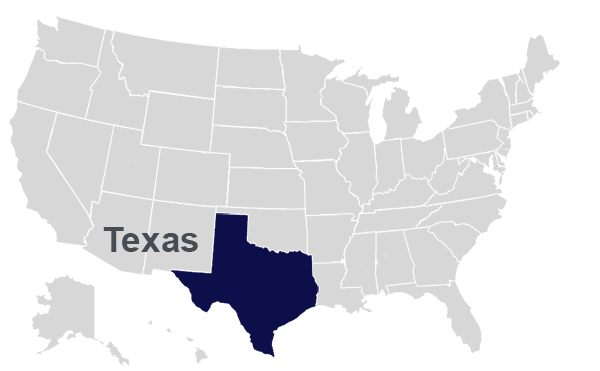Texas Teacher Mentoring Advisory Committee
In May 2013, the Texas Legislature passed H.B. 2012 that requires the TEA to provide administrative support to a committee charged with making recommendations to the governor and legislature by January 1, 2015 regarding the improvement of new teacher mentorship programs in Texas. The TXCC will provide technical assistance to the TEA through meeting co-facilitation, responding to requests for specific information on research-based practices and emerging promising practices in the area of teacher mentoring, accessing subject-specific experts, and assisting in developing required reports.
Previous Work Updates
2014
December
The final draft of the MAC report was reviewed by TEA leadership and was approved for submission and dissemination to the Texas Legislature. The final report, which details recommendations for improving Texas’ school district mentoring programs, can be found here .
November
In November, the TEA and TXCC team incorporated committee-recommended revisions into the final Mentoring Advisory Committee (MAC) report. The revisions centered around Texas teacher data, stakeholder input, and graphic supports. The Committee convened for a fourth and final meeting to review the final draft of the report that will be submitted to the Texas Legislature. With the addition of an executive summary, the Committee unanimously approved the report for submission. The Committee also developed an outreach and advocacy plan to garner support for their recommendations. The MAC report is slated to be disseminated to the Legislature and posted on the TEA website before January 1, 2015.
October
The Committee convened for a third time to review and discuss the feedback that Texas practitioners and stakeholders provided on the Committee’s recommendations. As a result of this meeting, the Committee condensed its 12 recommendations to 10 across seven broad areas: mentor selection, mentor assignment, mentor training, mentor roles and responsibilities, program design and delivery, funding, and accountability. The Committee also provided additional suggestions for the next draft of the mentoring report, which is expected in November
September
The first draft report representing the Texas Teacher Mentoring Advisory Committee’s work on mentoring and induction recommendations was completed in September. As part of the development and revision process, the committee sent its recommendations to a group of stakeholders for review. The stakeholders are being asked to provide input on the committee’s proposed recommendations as supported in the report that will go to the Legislature in January 2015. Stakeholders will share feedback on the extent to which they believe the recommendations will improve instruction, classroom management, professional collaborations, student performance, teacher retention, and job satisfaction.
August
Mentoring Advisory Committee members convened on August 7–8 and developed recommendations on how to improve teacher mentoring practices that effectively support teaching, teacher retention, and student outcomes. Using evidence-based research, work done in prior months, and consensus building processes, the MAC agreed upon 12 recommendations. Using these recommendations, a full-draft report was written and will be undergoing a review and revision process throughout the month of September.
July
MAC members completed an online form, developed by project staff, that allowed them to identify appropriate policy spaces for the set of findings they identified from mentoring-related research as important to improving mentoring policies and practices. The form also allowed members to independently note which of the findings should be considered for development into a recommendation. In preparation for the August meeting, project staff developed agendas, processes, and electronic tools to facilitate the primary objective of developing and reviewing draft recommendations to improve educator mentoring in Texas.
June
MAC members convened again in June to discuss a process for using the findings members highlighted from mentoring-related research earlier in the summer. Members used this meeting to understand the working components of a structure that the committee will use to draft a first set of recommendations due to the Legislature in January. The structure draws on the findings and information committee members identified as viable research-based practices for Texas’ various districts. Members were asked to identify appropriate policy spaces for their set of recommendations, allowing them to yield success. These activities will help establish a shared foundation for the committee’s next onsite meeting in August.
May
The Mentoring Advisory Committee (MAC) members convened at the end of May, kicking off a series of webinars designed around the committee’s work. Members reviewed aspects of the work’s detailed project plan and discussed approaches for communicating and exchanging information among members. Members also agreed to review additional mentoring-related research and materials to help inform the development of state mentoring recommendations.
April
The Texas Mentoring Advisory Committee (MAC) convened for the first time on April 10, 2014. Texas Education Agency staff and experts from the New Teacher Center presented data and research on effective mentoring practices and components that support quality, comprehensive beginning teacher programs, polices, and initiatives. Levers (e.g., policy funding, statute, etc.) used to design and support mentoring initiatives were shared with committee members highlighting how other states have implemented and supported mentoring in their states. MAC members commented that the information provided during the meeting was thorough and helped to guide them through the project’s process and next steps. TXCC staff facilitated the committee to develop a scope of work for the initiative, which included an outline of the major project actions and a timeline for completion. Committee members embraced their charge to develop a set of recommendations on effective mentoring and committed to engaging in continued meetings and conversations over the next two months with a second face-to-face meeting planned for August.
March
During March, TXCC and the Texas Education Agency developed and confirmed the meeting agenda for the Texas Teacher Mentoring Advisory Committee whose first meeting is in April. Research and best practices on the components of high quality mentoring programs as well as how states support and implement policy levers for mentor-related statewide initiatives will be presented. The committee is comprised of a diverse group of eight members who bring rich mentoring backgrounds and experiences.
February
In February, TXCC and Texas Education Agency (TEA) staff reviewed and discussed the results of the statewide mentor survey released in January and planned for appropriate uses of the data. In addition, TEA and TXCC continued collaborating with the New Teacher Center (NTC) staff in preparation for the initial Teacher Mentoring Advisory Committee in April. During that meeting, NTC will share research and emerging practices that show promise on mentoring with committee members.
January
In December TXCC and TEA staff met to finalize a survey on the status of mentoring in Texas. The survey was delivered to all superintendents in early January with responses anticipated by January 31. Survey results will be shared with a nine-member Mentor Advisory Committee that will meet in April 2014 to review the results and examine best practices in mentoring.
2013
November
In November, the TXCC and TEA met to review next steps in the project and to compile a list of survey questions that will be sent to all superintendents in the state in order to determine the status of mentoring-program implementation in Texas. The survey will be sent out in January 2014 with the expectation that the individual in each district with the most knowledge of mentoring programs will complete it. A compilation of the survey results will be shared with a nine-member Mentor Advisory Committee (MAC) that is being formed by the offices of the governor, the lieutenant governor, and the speaker of the house.
October
In September and October, the TXCC and TEA met to determine next steps to support the agency in addressing specific requirements of House Bill (H.B.) 2012, passed during the last Texas legislative session. A portion of H.B. 2012 requires that TEA provide administrative support to a committee charged with making certain recommendations to the governor and legislature in January of 2015. These recommendations will be regarding the improvement of new-teacher mentorship programs in Texas. TEA and TXCC will continue planning for this work in the coming months.




